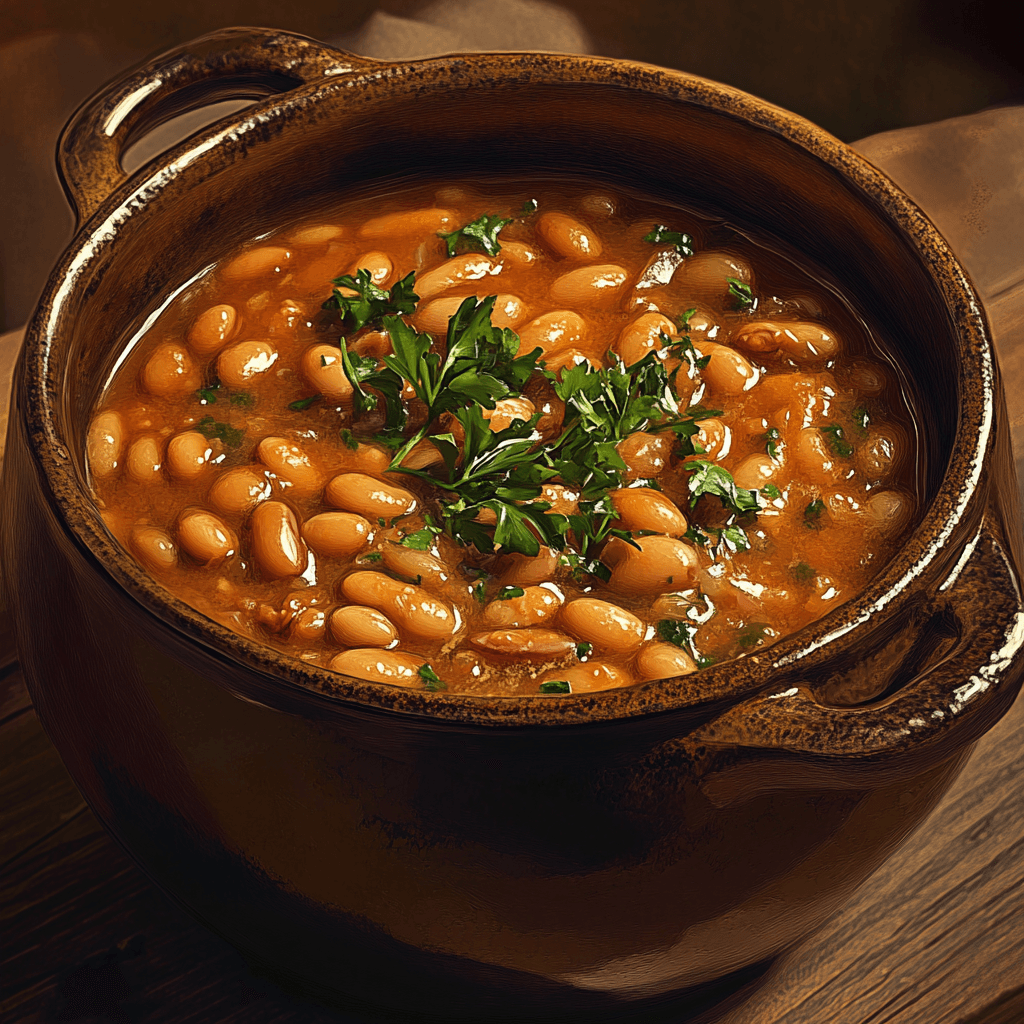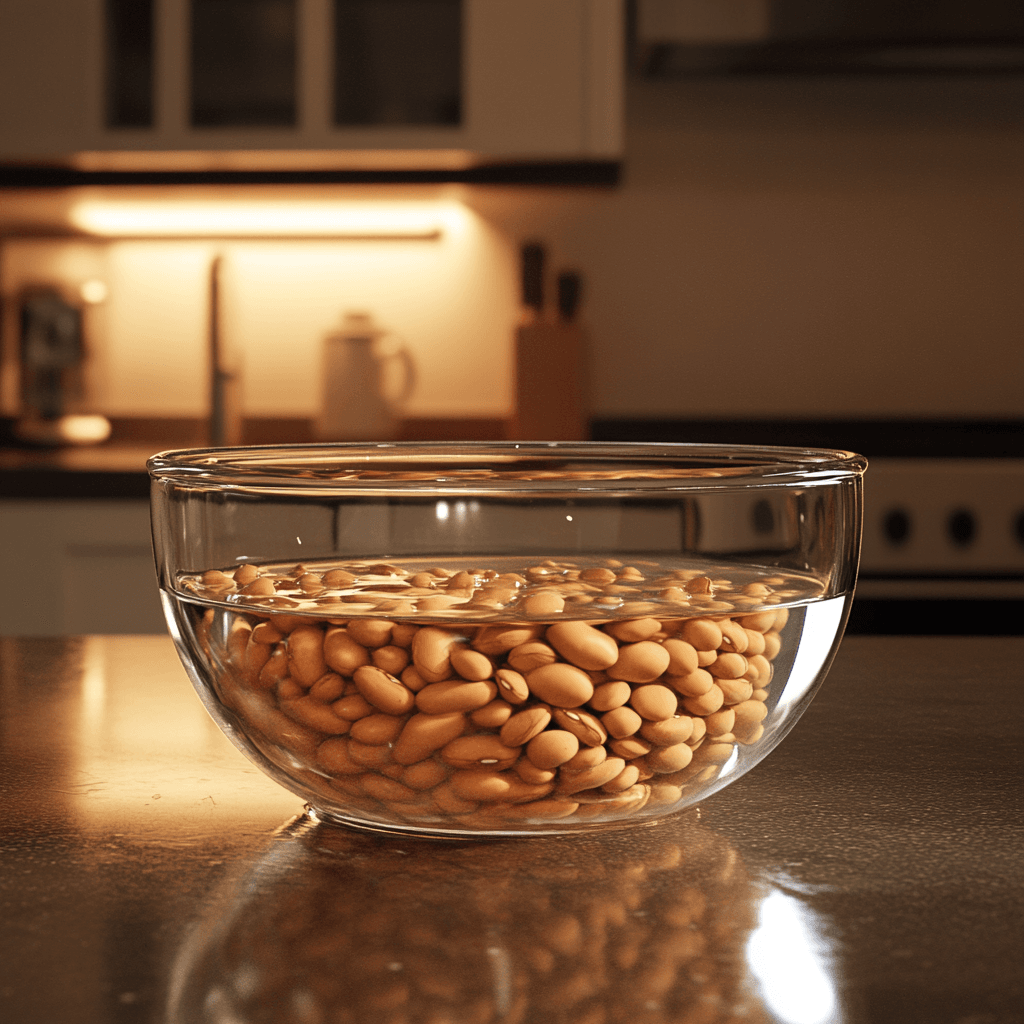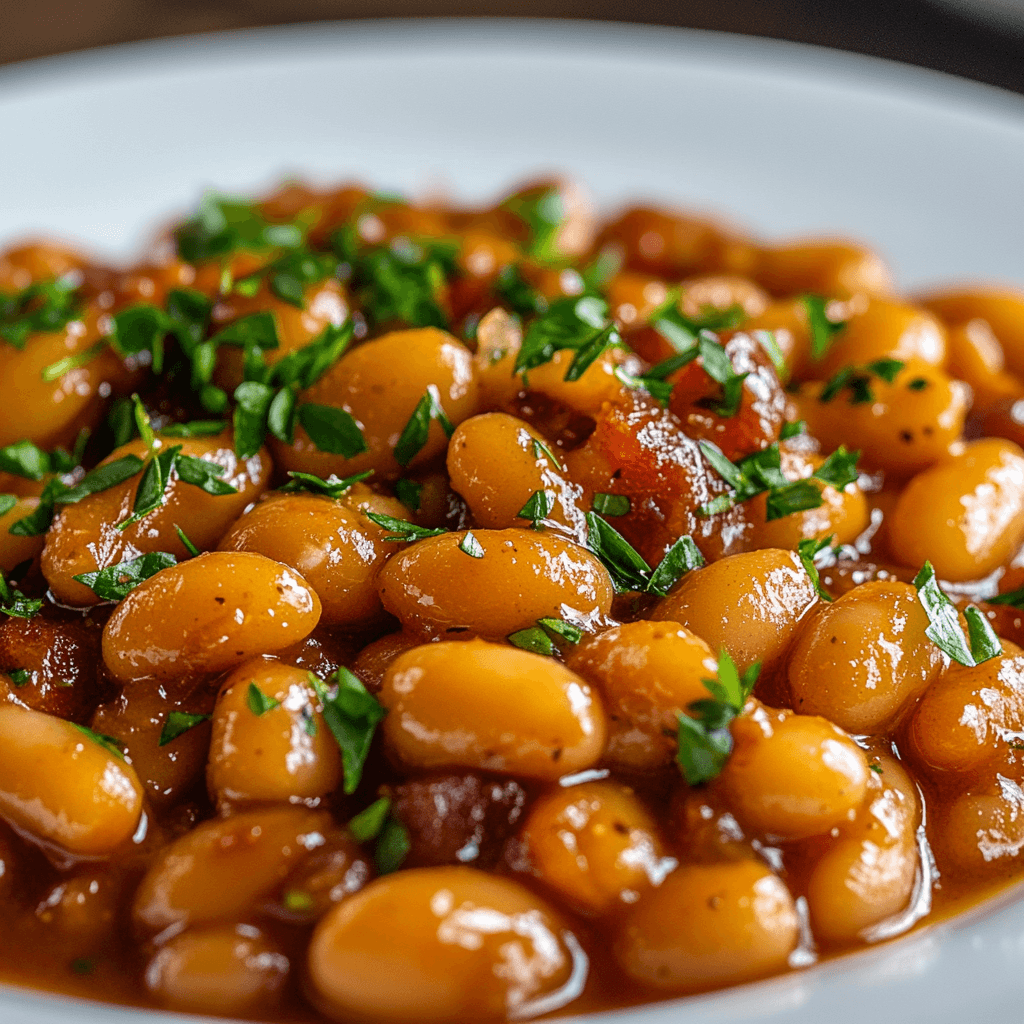
Homemade baked beans are a hearty and comforting dish enjoyed worldwide, but sometimes they don’t turn out as soft and tender as desired. Beans that remain hard can ruin the texture and overall enjoyment of the dish. Luckily, there are several proven methods to ensure your baked beans turn out perfectly soft and flavorful every time.
In this article, we will explore the reasons why beans might remain hard, how to cook them properly, and tips to achieve that irresistible, melt-in-your-mouth softness. By following these guidelines, you’ll never have to deal with tough homemade baked beans again.
Table of Contents
Why Homemade Baked Beans Become Hard
Before diving into solutions, it’s important to understand the common reasons why homemade baked beans turn out hard.
1. Quality of Beans
The age and quality of beans directly affect how soft they become during cooking. Older beans tend to take longer to soften because their outer skins become more resistant over time.
- Solution: Always check the packaging date when purchasing beans. Opt for fresh beans for the best results.
2. Cooking Techniques
Cooking beans at high temperatures or skipping essential steps like soaking can result in tougher beans. Beans require slow, gentle heat to break down properly.
- Solution: Use a slow and steady cooking process to soften the beans thoroughly.
3. Ingredients Impact
Some ingredients, particularly acidic ones like tomatoes, vinegar, or citrus, can hinder the softening process by hardening the bean’s outer shell.
- Solution: Add acidic ingredients only after the beans have softened during cooking.
Key Methods to Soften Homemade Baked Beans
To make homemade baked beans softer, follow these key methods during preparation and cooking:
1. Soaking Beans Properly

Soaking beans before cooking is one of the most effective ways to ensure they become soft.
- How to Soak:
- Place the beans in a large bowl.
- Cover them with water (at least 2-3 times their volume).
- Soak them for 8-12 hours or overnight.
- Drain and rinse the beans thoroughly before cooking.
Why It Works: Soaking softens the beans and reduces their cooking time.
2. Pre-Cooking Techniques
For even softer beans, pre-cook them before adding other ingredients to your baked beans recipe.
- Method: Simmer the soaked beans in water for 45 minutes to an hour until they start to soften.
3. Importance of Low and Slow Cooking
Cooking beans at a low temperature over a longer period allows the fibers in the beans to break down without drying them out.
- Best Methods:
- Slow Cooker: Perfect for achieving soft beans with little effort.
- Oven: Cook beans at a low temperature (300°F or 150°C) for 3-4 hours.
- Stovetop: Simmer the beans gently over low heat, checking for tenderness periodically.
Adding Baking Soda for Softer Beans
Baking soda is a well-known secret for softening beans during cooking.
1. How Baking Soda Works
Baking soda is alkaline and works by breaking down the pectin in the bean’s cell walls, allowing them to soften more quickly.
- Benefits: Reduces cooking time and ensures tender beans.
2. Proper Measurement and Timing
Adding the correct amount of baking soda is crucial to avoid altering the flavor of the beans.
- How to Use:
- Add 1/4 teaspoon of baking soda per pound of dried beans during the initial cooking stage.
- Avoid using too much, as it can leave a soapy taste in the beans.
Pro Tip: Always rinse the beans thoroughly after cooking with baking soda to remove any residual taste.
Common Mistakes That Lead to Hard Beans
Understanding common mistakes that hinder bean softening can help you avoid them and achieve perfectly tender homemade baked beans.
1. Skipping the Soaking Step
One of the most critical steps in preparing beans is soaking them. Without soaking, beans will take much longer to cook and may never achieve the desired tenderness.
- Why It Happens: Many people skip this step to save time, not realizing it is vital for breaking down the beans’ tough outer skin.
- Solution: Always soak beans for 8-12 hours or use the quick soak method:
- Boil the beans in water for 2-3 minutes.
- Remove from heat, cover, and let sit for 1 hour before rinsing and cooking.
2. Adding Acidic Ingredients Too Early
Acidic ingredients such as tomatoes, vinegar, wine, or lemon juice can harden beans if added too early in the cooking process. Acid prevents the pectin in the beans’ cell walls from breaking down, keeping them firm.
- Solution: Wait until the beans are fully softened before adding acidic ingredients. This ensures they have the right texture while still allowing for flavor enhancement.
3. Using Hard Water
The minerals in hard water, particularly calcium and magnesium, can make beans remain tough even after prolonged cooking.
- Solution: Use filtered or bottled water when cooking beans. If you know your tap water is hard, consider softening it with a pinch of baking soda to neutralize the minerals.
4. Cooking at High Temperatures
Boiling beans vigorously or cooking them too quickly can cause the outer skin to harden while the inside remains undercooked.
- Solution: Use low, steady heat for a longer period. Slow cooking (in the oven, on the stovetop, or in a slow cooker) is the best approach for tenderizing beans evenly.
How to Test the Softness of Baked Beans
To ensure your homemade baked beans are soft and ready to serve, it’s important to test their doneness properly.
1. Using the Fork Test
The fork test is a simple and reliable way to check the softness of baked beans.
- How to Perform the Fork Test:
- Take a bean out of the pot.
- Press it gently with a fork or your fingers.
- If the bean mashes easily without resistance, it is soft and ready to serve.
- If the bean remains firm or splits without mashing, it needs more cooking time.
2. Taste and Texture Guidelines
Tasting the beans is another way to check for readiness.
- What to Look For:
- Soft and creamy texture inside the bean.
- No grainy or chalky consistency.
Pro Tip: Beans continue to cook and soften slightly after being removed from heat, so factor in resting time if needed.
Tips for Perfect Homemade Baked Beans

For consistently soft and flavorful baked beans, follow these tips and tricks:
1. Choosing the Right Beans
The type of bean you choose will affect the texture and softness of your dish.
- Best Beans for Baking:
- Navy Beans: Small, tender, and perfect for baked beans.
- Great Northern Beans: Slightly larger but still soft when cooked.
- Pinto Beans: Creamy texture that works well for baked recipes.
Avoid old or improperly stored beans, as they can remain hard no matter how long you cook them.
2. Cooking Equipment Matters
Different cooking methods can affect how quickly and evenly beans soften.
- Slow Cooker: This is one of the most foolproof methods for soft beans. Cook on low for 6-8 hours.
- Oven: Baking beans in a covered dish at a low temperature (300°F/150°C) for several hours ensures soft, evenly cooked results.
- Stovetop: Simmer beans gently on low heat, adding water as needed to prevent them from drying out.
3. Use the Right Amount of Liquid
Beans absorb a lot of liquid as they cook. If the pot runs dry, the beans will become hard and unevenly cooked.
- Solution: Keep beans submerged in water or broth throughout the cooking process. Add more liquid as needed, and stir occasionally to ensure even cooking.
Additional Ingredients to Enhance Softness
In addition to proper soaking and cooking techniques, certain ingredients can improve the softness and flavor of homemade baked beans.
1. Broths and Liquids
Cooking beans in broth instead of plain water enhances their flavor while keeping them moist and soft.
- Best Options: Chicken broth, vegetable stock, or seasoned water.
2. Fat-Based Additions
Adding a small amount of fat can help beans achieve a creamier texture.
- Options:
- Bacon or ham fat: Adds both softness and a smoky flavor.
- Olive oil or butter: Provides a rich and velvety texture to the beans.
Pro Tip: Add fats near the beginning of the cooking process to ensure they are absorbed into the beans for the best results.
Frequently Asked Questions (FAQs)
1. Why are my beans still hard after cooking?
Beans may remain hard after cooking due to several factors:
- Old beans: If the beans are too old, their outer shells become resistant to softening.
- Acidic ingredients: Adding acidic ingredients like tomatoes or vinegar too early can prevent the beans from softening.
- Hard water: Minerals in hard water can interfere with the softening process.
- Solution: Always use fresh beans, soak them thoroughly, and add acidic ingredients later in the cooking process. Use filtered water for cooking.
2. Can I soften beans without soaking?
Yes, but it will take longer. If you skip the soaking step, beans will require extended cooking time to become soft.
- Quick Solution: Use the quick soak method: boil the beans for 2-3 minutes, then let them sit in the hot water for 1 hour. Drain and rinse before cooking.
3. Does salt make beans tough?
Contrary to popular belief, salt does not make beans tough when added at the right time. In fact, adding salt during cooking enhances flavor and helps soften the beans.
- Tip: Add a small amount of salt after the beans have softened slightly but before they are fully cooked for the best results.
4. What type of beans are best for baking?
The best beans for baked dishes are those that hold their shape while softening nicely. Popular choices include:
- Navy beans
- Great Northern beans
- Pinto beans
These beans cook evenly, absorb flavors well, and develop a creamy texture.
5. How long do baked beans need to cook?
Homemade baked beans typically take 3-4 hours in the oven at a low temperature (300°F or 150°C). If using a slow cooker, they take 6-8 hours on low.
- Tip: Always test for doneness with a fork or by tasting to ensure the beans are soft.
6. Can I re-cook beans to make them softer?
Yes, if your beans are still hard after the initial cooking, you can continue cooking them. Add more water or broth to prevent drying out, and simmer them gently over low heat until they soften.
- Pro Tip: If time is short, adding a small pinch of baking soda can speed up the softening process.
Conclusion
Making homemade baked beans softer is all about preparation, patience, and using the right techniques. From soaking the beans overnight to cooking them low and slow, every step plays an important role in achieving that perfect tender texture. Avoid common mistakes such as adding acidic ingredients too early or skipping the soaking process.
Incorporating simple additions like baking soda, broths, and fats can further enhance the softness and flavor of your beans. By following the methods and tips outlined in this article, you’ll consistently enjoy soft, creamy, and delicious homemade baked beans.
So, whether you’re preparing baked beans for a hearty breakfast, a potluck, or a comforting dinner side, these strategies will ensure your beans are irresistibly soft and satisfying every time.
Print
How do you make homemade baked beans softer?
Description
1. Soak the Beans Overnight
- If using dried beans, soak them in plenty of water for at least 8–12 hours or overnight.
- This helps break down tough starches and shortens cooking time.
- For a quicker option, use the quick soak method:
- Bring beans to a boil for 2 minutes.
- Remove from heat and let them soak for 1 hour before draining and cooking.
2. Cook the Beans Before Baking
- After soaking, simmer the beans in fresh water for 1–1.5 hours until tender but not mushy.
- If they are still firm, continue cooking before adding them to the sauce.
3. Add Baking Soda (Optional)
- Adding 1/4 teaspoon of baking soda to the cooking water can help soften beans faster by reducing acidity.
- Be careful not to use too much, as it can alter the taste.
4. Avoid Acidic Ingredients Too Early
- Tomatoes, vinegar, and molasses can slow down the softening process by toughening bean skins.
- Add them after the beans are fully cooked or during the last hour of baking.
5. Slow Cook for Tender Beans
- For baked beans, cook them low and slow (325°F / 160°C) for 2–3 hours, adding liquid if needed.
- If using a slow cooker, cook on low for 6–8 hours for extra softness.
6. Check Your Water Type
- Hard water (high in minerals) can make beans tough. Use filtered or bottled water for best results.
